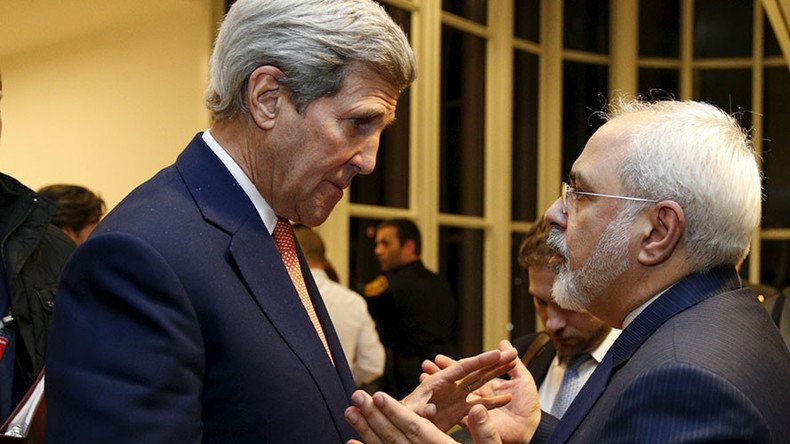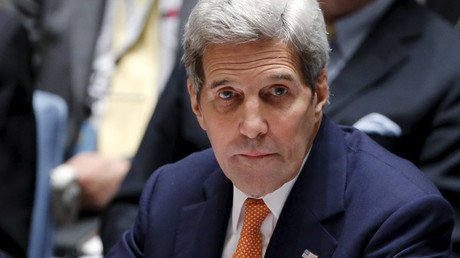State Dept to Senate: Sanction Iran, but don't endanger nuclear deal

Any new sanctions against Iran should not to interfere with the implementation of the nuclear deal, a senior State Department official told the Senate, noting that reneging on the deal would damage Washington and the Middle East.
Testifying before the Senate Committee on Foreign Relations on Tuesday, Under Secretary of State for Political Affairs Thomas Shannon said that the US remains “resolutely opposed” to Iran’s ballistic missile program.
Foggy Bottom believes it can deter and delay Tehran using the existing laws and sanctions instruments, Shannon argued, asking the Senators not to jeopardize the Joint Comprehensive Plan of Action (JCPOA), a nuclear disarmament deal reached last year.
Shannon faced questions from a bipartisan panel united around condemning Iran’s missile tests and worried about the possibility of Tehran’s access to the US financial system. The Senators also blamed Iran for allegedly threatening the entire Middle East by supporting Hezbollah in Lebanon, the government of Syria, and the Houthi rebels in Yemen.
“We have several key objectives in our policy toward Iran: First, to ensure Iran’s adherence to the JCPOA, which will prevent Iran from developing a nuclear weapon and guarantees that its nuclear program remains exclusively peaceful,”Shannon said. “Second, to counter Iran’s support for terrorism and other destabilizing activities, while also working diplomatically to encourage Iran to play a more constructive role in the region; Third, to promote respect for human rights in Iran.”
Committee chairman Bob Corker, a Republican from Tennessee, pointed out that the 2010 Iran Sanctions Act was set to expire at the end of this year, and that renewing it would provide Washington with leverage against Tehran going forward.
“Our view is that we should not be in a rush” to pass new punitive measures, Shannon said. The Senators, however, almost unanimously insisted that Iran was violating the “spirit” of the JCPOA, while complying with the agreement’s letter.
“I didn’t mean to say we were walking on eggshells or pulling punches,” Shannon said. “We just want to make sure that as Iran meets its commitments, we meet our commitments.”
Both the ranking Democrat on the committee, Maryland Senator Ben Cardin, and Wyoming Republican John Barasso raised the possibility of Iran purchasing either the Su-30 fighter jets or S-300 air defense systems from Russia.
The sale is not prohibited under the existing UN Security Council resolutions, as S-300 is considered a purely defensive system, Shannon said, noting that the US has “made it very clear to the Russians that we consider this to be a bad move.” On the other hand, the sale of fighter jets would have to be approved by the Security Council, and Washington was determined to veto it.
Senator Tim Kaine, a Democrat from Virginia, asked about the consequences of walking back from the nuclear deal, noting that 3 out of 5 presidential candidates in the current campaign advocated doing so in some way.
Reneging on the deal would make the US look unreliable, Shannon said, and “reopen Pandora’s box in the region.” Iran would take it as a clear signal that it needs to develop nuclear weapons with great urgency, while the other members of the 'P5+1' group would not support the US.
“I get the sense that Secretary [of State John] Kerry has gotten to know [Iranian] Foreign Minister Zarif well, and that there’s a desire by the secretary to accommodate, to bend, to make this work more than the agreement says it should for Iran,” Corker said concluding the session, adding that the committee had no desire to “provide flexibility that does not exist.”













